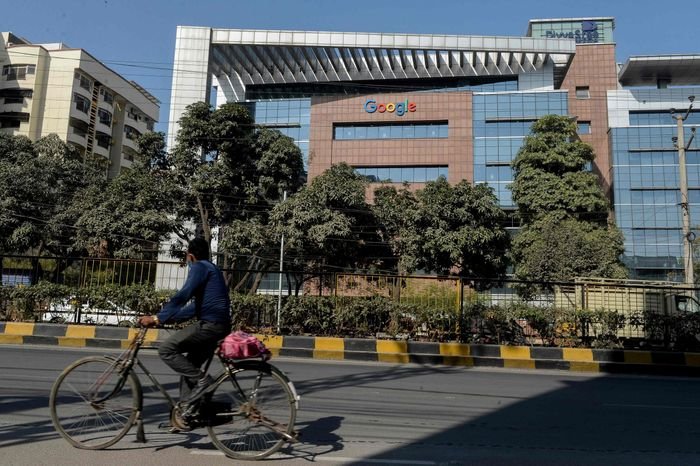Signs of an end to the pandemic-era became more obvious after Google (GOOG:NASDAQ) reported its weakest quarterly sales growth in two years, while Microsoft (MSFT:NASDAQ) showed its slowest earnings growth in the same period.
Alphabet posted $69.69 billion of second-quarter revenue on Tuesday, up 13% from the same period last year, but trailing $69.9 billion expected. Sales for the missed Wall Street estimates by almost $190 million, while net income fell 14% to $16 billion.
Sales in the Google Cloud division rose 36% from a year earlier to $6.28 billion in the second quarter. The business recorded an operating loss of $858 million during the quarter, reflecting Google’s heavy spending push as it attempts to catch up to Amazon (AMZN:NASDAQ) and Microsoft (MSFT:NASDAQ) in the cloud market.
YouTube, Google’s video-streaming business, generated $7.3 billion in advertising revenue during the second quarter, extending a slowdown in growth as it competes for viewers with services such as ByteDance Ltd.’s TikTok. Analysts expected sales climbed 4.8% compared with the same period last year, after they rose more than 14% in the first quarter.
Google, which has a dominant share in the markets for internet search, navigation and video streaming, is considered a bellwether for the strength of online advertising. Investors were watching whether Google’s search business can continue its remarkable run after cracks have begun showing in YouTube and the broader online advertising sector.
The slowdown in growth on YouTube and Google’s business brokering ads on third-party platforms reflects pullbacks in spending by advertisers. The weakness in ad spending also led to disappointing results from other social-media companies like Twitter (TWTR:NASDAQ) and Snap (SNAP:NYSE) last week as macroeconomic pressures weigh on the financial health of social media companies.
Shares rose more than 5% in after-hours trading, reflecting the extent to which investors had braced for disappointing earnings given the broader fallout in digital ads. Alphabet didn’t provide a revenue forecast, but analysts expect growth for the year of 14% to $293.9 billion.
Microsoft (MSFT:NASDAQ) on the other hand suffered its slowest earnings growth in two years, hurt by a sharp slowdown in its cloud business, declining videogame sales and the effects of strong dollar. The company on Tuesday posted sales of $51.9 billion for its fiscal fourth-quarter, up 12% for the same period a year earlier, though below Wall Street expectations. Net income for the three months through June was $16.7 billion.
Microsoft is starting to experience the effects of an end to the pandemic-era boom when the company was benefiting from shift to remote working and online consumer spending. The Covid-19 outbreak fueled the adoption of cloud services and the sale of computers using its Windows operating system. In the most recent quarter, though, PC shipments suffered their steepest decline in years. The China disruptions and PC slowdown lowered Windows related revenue by $300 million, Microsoft said.
The strength of the U.S. currency means Microsoft’s sales abroad are less lucrative, prompting last month’s profit warning. The currency effect of a stronger dollar represented a $595 million hit to its top line.
Sales were also affected by myriad of other issues, including supply-chain disruptions in China, cutting back operations in Russia after the invasion of Ukraine, plus the slowdown in the digital-advertising market.
The company gave an upbeat outlook, causing shares to rally after hours. Microsoft said sales and operating income on a currency-adjusted basis should increase by a double-digit percentage, financial chief Amy Hood said during the earnings call. The sales outlook for the current quarter, Hood said, was for $49.25 billion to $50.25 billion.
Microsoft is among the lengthening list of tech companies pursuing belt tightening amid rising concerns about a recession. It recently imposed a hiring freeze on various parts of the company and laid off a small number of employees. Microsoft shares jumped about 5% in after market trading on Tuesday.

